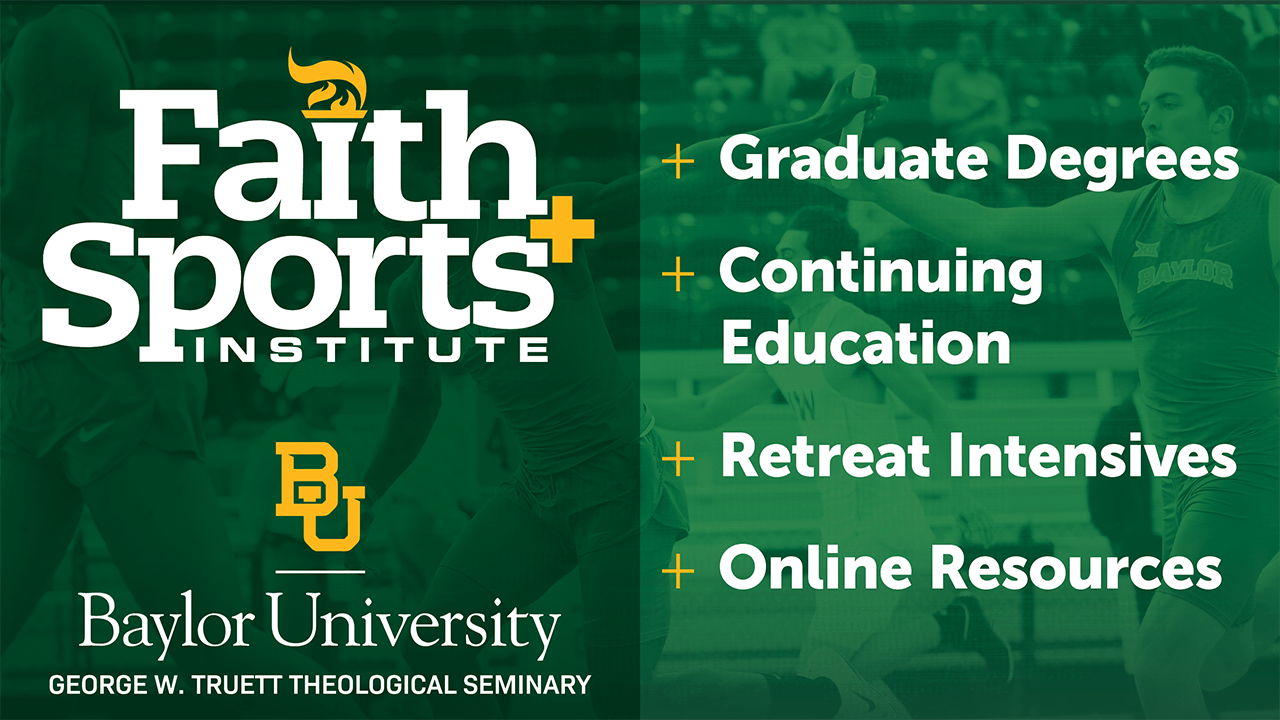
Tracy Hanson is a retired professional golfer and is the founder of The Tracy Hanson Initiative, which aims to provide safe opportunities for elite athletes to talk about trauma, as well as training to those who serve them.
Tracy Hanson
When I retired from the LPGA Tour in 2009, mental health in sports was rarely a topic of discussion. It has taken brave athletes like Rachael Denhollander, who ripped open the mortuary bag on hidden sexual abuse within USA Gymnastics, and Kevin Love, who wrote about his experience with anxiety, to bring sustained attention to mental health issues in sports.
But while more athletes are opening up and revealing their struggles, one space that is often overlooked in the conversation is sports ministry. Whether it’s staff members with Athletes in Action (AIA) or the Fellowship of Christian Athletes (FCA), chaplains and character coaches working within sport organizations, or countless volunteer mentors, sports ministry leaders fill important roles geared towards meeting the emotional and spiritual needs of others. Too often, however, we fail to recognize that sports ministers have stories and struggles of their own that need care and attention.
From the outside, it may seem like those in sports ministry exist in a dream world: it’s their job to be involved with sports, and they have access and friendships with athletes and coaches who they get to mentor and serve.
But what the distant observer doesn’t know is the countless hours and consistent touch points that must happen for sports ministers to build relationships and provide effective spiritual care and discipleship for a revolving door of people. Nor do they know the numerous barriers to make this work happen. Perhaps it’s resistance from upper-level administration; maybe it’s an overprotective coach. There are also the stresses of securing financial support, working with limited resources, and feeling the pressure to serve as a model Christian for others to follow—to say nothing of navigating the theological and cultural debates dividing churches and other Christian communities.
Throw in a global pandemic, and you’ve got a recipe for mental health challenges.
Of course, most sports ministry leaders receive some level of training on basic aspects of spiritual care, like how to facilitate discipleship models. But in my experience, there is rarely extensive training for emotional and mental well-being for oneself and the athletes we serve. And I think we have a scriptural imperative to remedy this neglect. Jesus’s command to “love your neighbor as yourself” (Mark 12:31) suggests that loving our neighbor well—including the athletes and coaches we serve—means loving ourselves well. This includes our mental health.
There is not a one-size-fits-all answer for what this might look like. For some in sports ministry, professional counseling might be the right step. Others might have a healthy support system that they simply need to maintain. Another proven mental health and wellness practice is to cultivate communities where our stories can be shared. Aundi Kolber, author of Try Softer: A Fresh Approach to move Us Out of Anxiety, Stress, and Survival Mode—and into a Life of Connection and Joy, writes about the importance of spaces where we can “be ‘with’ our stories, in our bodies—without becoming overwhelmed by or numbing our past experiences.” Through this, we learn not only how to handle grief, sorrow, and struggle, but also how to “write new endings that are true to ourselves.”
In my work facilitating conversations and story group retreats with fellow sports ministry leaders, I see the power and importance of telling our stories. I consistently hear about traumatic and difficult childhood experiences: alcoholic parents, an absence of emotional nurturing, expectations of perfection, or spiritual, physical, emotional, and sexual abuse by authority figures. Often, these wounds have been papered over or pushed aside for years. It’s easy to get so focused on ministering to the needs of others that we neglect our own. But when our stories are held in silence or believed to be unimportant, symptoms like burnout, anxiety, depression, or lack of self-worth and compassion can often leak out of our souls.
If you work in sports ministry, do you have anyone in your life who really knows your story? Do you have opportunities to process past experiences? Do you have mentors who are themselves emotionally, spiritually, and mentally healthy?
As we continue the mental health conversation in sports, let’s make sure to include the people in sports ministry. Every person’s story is important and worthy to be heard and cared for—even those who feel called to care for the stories of others.
 About the author: Tracy Hanson played collegiate golf at San Jose State University where she won 11 individual titles and an NCAA Team Championship. After graduating with a BS in Human Performance, Tracy went on to play 16 years professionally before retiring from the LPGA Tour in 2009. She has traveled 11 times to the Holy Land as a Biblical Study Trip facilitator, has worked as a Brain Assessment Specialist, and is Lay Counselor certified through The Allender Center. As a result of her own counseling and healing journey, Tracy founded The Tracy Hanson Initiative to provide safe opportunities for elite athletes to talk about trauma, and training to those who serve them. She is also a member of the Team of Advocates for the Faith & Sports Institute.
About the author: Tracy Hanson played collegiate golf at San Jose State University where she won 11 individual titles and an NCAA Team Championship. After graduating with a BS in Human Performance, Tracy went on to play 16 years professionally before retiring from the LPGA Tour in 2009. She has traveled 11 times to the Holy Land as a Biblical Study Trip facilitator, has worked as a Brain Assessment Specialist, and is Lay Counselor certified through The Allender Center. As a result of her own counseling and healing journey, Tracy founded The Tracy Hanson Initiative to provide safe opportunities for elite athletes to talk about trauma, and training to those who serve them. She is also a member of the Team of Advocates for the Faith & Sports Institute.





